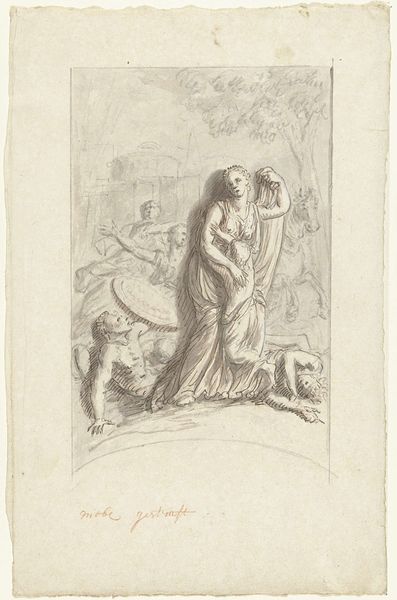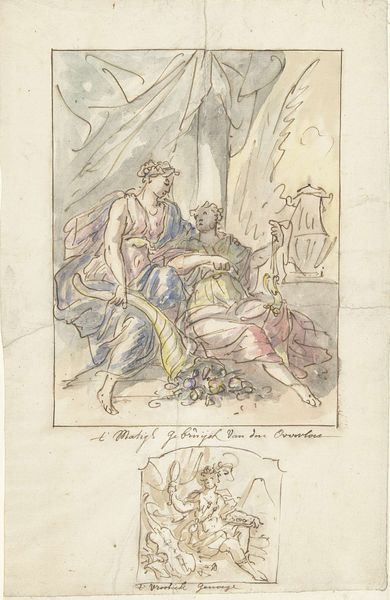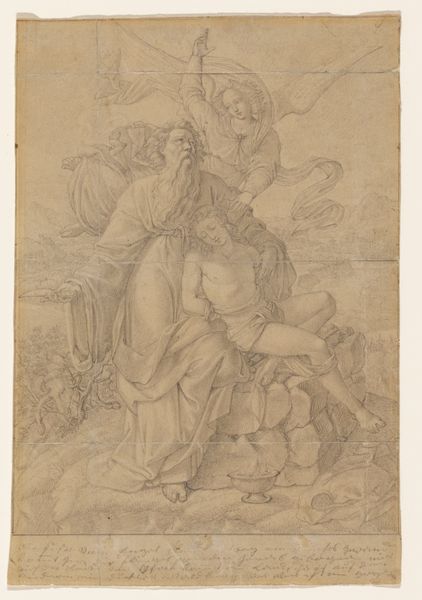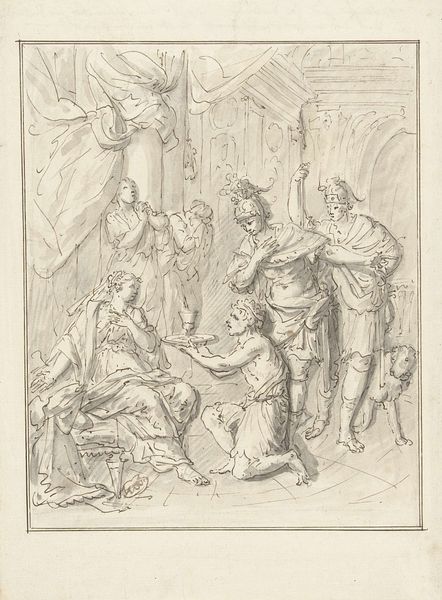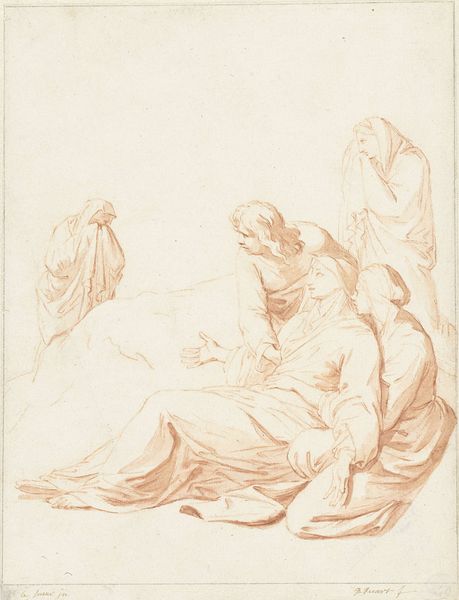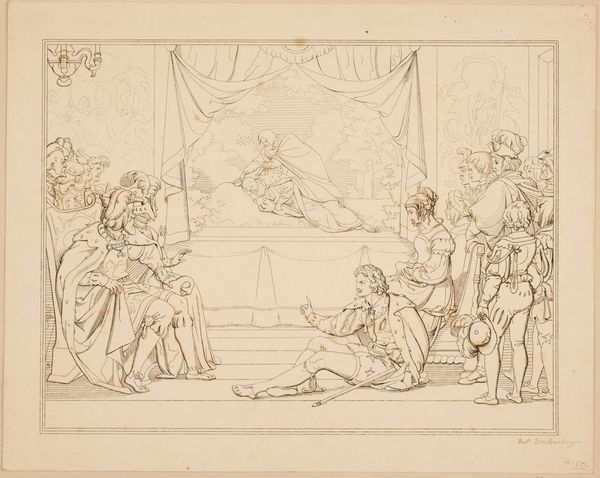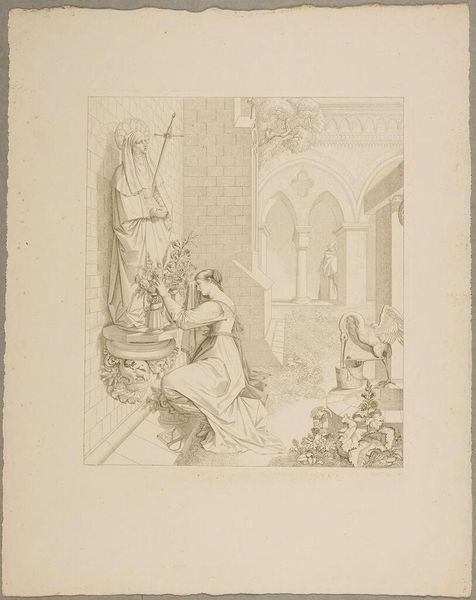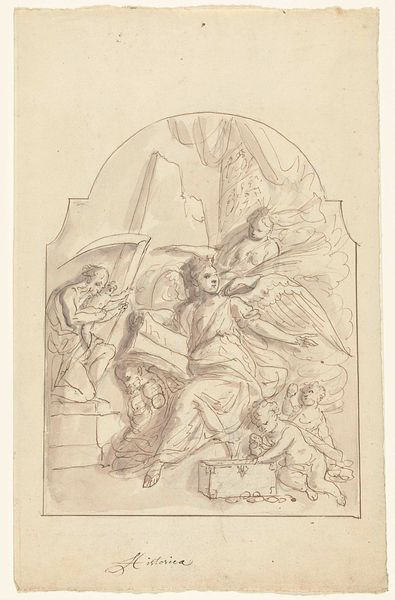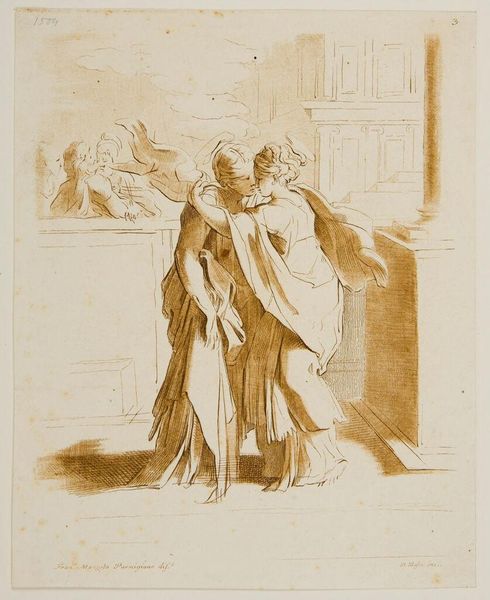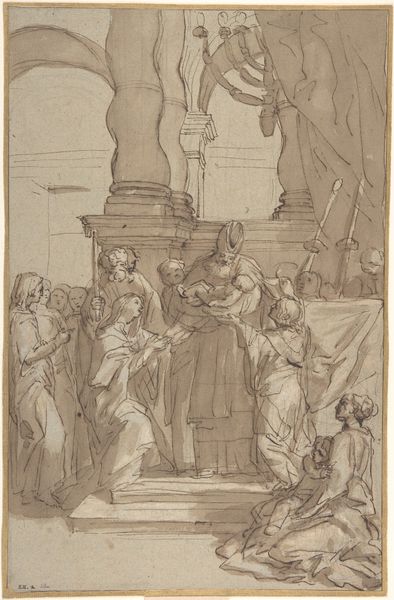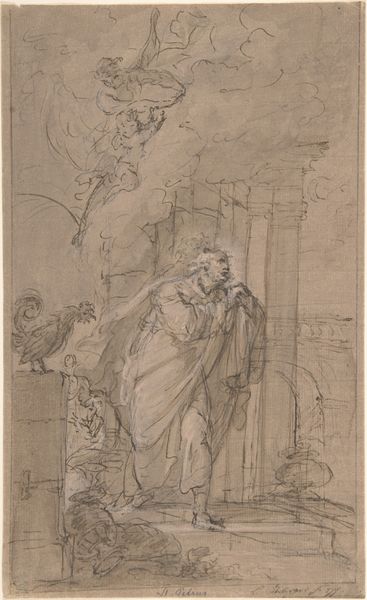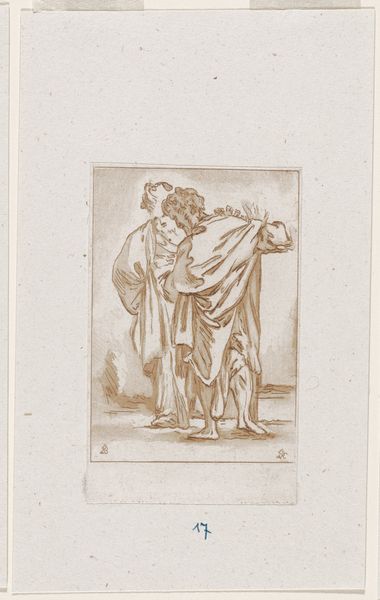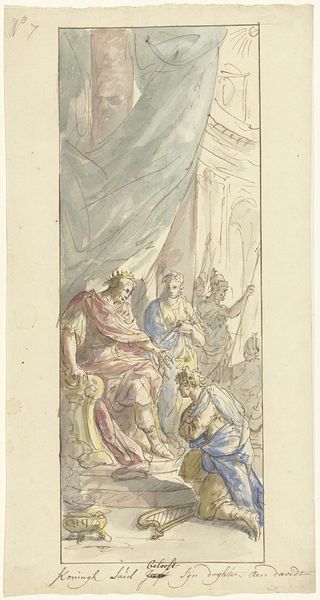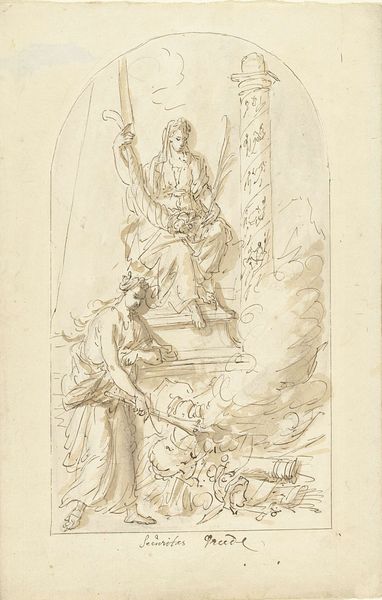
drawing, paper, ink, pencil
#
drawing
#
allegory
#
baroque
#
pen sketch
#
pencil sketch
#
paper
#
ink
#
pen-ink sketch
#
pencil
Dimensions: height 325 mm, width 204 mm
Copyright: Rijks Museum: Open Domain
Elias van Nijmegen made this drawing, 'De Wijsheid onthult de Valsheid', which translates to 'Wisdom Unveiling Falsehood', in the Netherlands, sometime between the late 17th and early 18th centuries. The image allegorizes wisdom as a classical goddess, seated with her shield and owl. She is shown drawing back a curtain to reveal a figure of falsehood, who recoils in the light. Such images were very common in the Dutch Republic, which defined itself against the perceived falsehoods of Catholic Spain during its long struggle for independence. Nijmegen’s drawing invokes a visual language that served to justify the institutions of the Dutch Republic, which included religious toleration and free trade, but also the exclusion of Catholics from political power. The image's visual rhetoric would have been very familiar, which explains why the artist did not feel the need to finish the artwork. Studying prints and pamphlets from the period, we can see how artists helped define what was considered true or false.
Comments
No comments
Be the first to comment and join the conversation on the ultimate creative platform.
